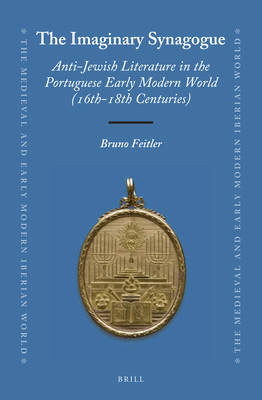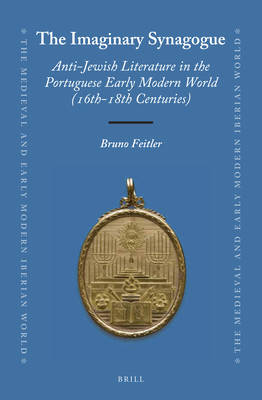
- Afhalen na 1 uur in een winkel met voorraad
- Gratis thuislevering in België vanaf € 30
- Ruim aanbod met 7 miljoen producten
- Afhalen na 1 uur in een winkel met voorraad
- Gratis thuislevering in België vanaf € 30
- Ruim aanbod met 7 miljoen producten
Zoeken
The Imaginary Synagogue: Anti-Jewish Literature in the Portuguese Early Modern World (16th-18th Centuries)
Bruno Feitler
€ 221,45
+ 442 punten
Omschrijving
This book scrutinizes literary works based on Judaism, Jews and their descendants, written or printed by the Portuguese, from the forced conversion of Jews in 1497, until the ending of the distinction between New and Old Christians in 1773. It tries to understand what motivated this vast literary production, its different currents, and how they evolved. Additionally, it studies the image of New Christians and seeks the reasons for the perpetuation of this perception of Jewish descendants in the Early Modern Portuguese world. The Imaginary Synagogue seeks to identify which Jews and which 'synagogue' those authors constructed in their texts and their reasons for doing so, and offers conclusions on the self-affirmed Catholic importance of this literary current.
Specificaties
Betrokkenen
- Auteur(s):
- Uitgeverij:
Inhoud
- Aantal bladzijden:
- 216
- Taal:
- Engels
- Reeks:
- Reeksnummer:
- nr. 61
Eigenschappen
- Productcode (EAN):
- 9789004264106
- Verschijningsdatum:
- 27/08/2015
- Uitvoering:
- Hardcover
- Formaat:
- Genaaid
- Afmetingen:
- 160 mm x 241 mm
- Gewicht:
- 498 g

Alleen bij Standaard Boekhandel
+ 442 punten op je klantenkaart van Standaard Boekhandel
Beoordelingen
We publiceren alleen reviews die voldoen aan de voorwaarden voor reviews. Bekijk onze voorwaarden voor reviews.











